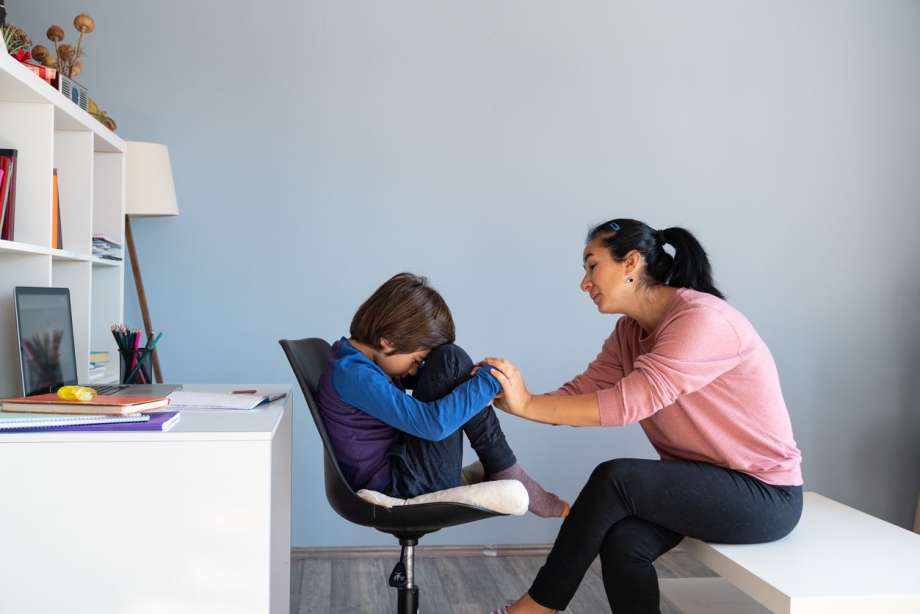The Hallmarks of a Stressed Child

The Hallmarks of a Stressed Child
"I swear he's possessed," complained the mother of six-year-old Harry. "He has been in a foul mood for most of the week, and yesterday I found him in his sister's room cheerfully disemboweling her toy cat with a kitchen knife. The stuffing was flying everywhere. But the moment I went into the room, he looked up at me with these big helpless eyes (the knife still in his hand, mind you) and yelled, 'It wasn't me!' Then suddenly his face crumpled up and he started howling. His father keeps asking when his period's due!"
What Harry's mother was describing is fairly typical of a child under duress, and it was no great surprise to discover that Harry's behavior was most likely a delayed reaction to a recent move of the family to a new house. Abrupt mood swings, lying, and bullying behavior can all be the outward signs of internal pressure as your child's powers of self-control break down. For the reasons already mentioned, stressed children might also report finding it difficult to concentrate and can become more forgetful than usual.
When stress hormone levels are elevated, they can also produce some of the physical symptoms of anxiety: feeling out of breath, shaky, or dizzy. Your child may appear to be "coming down with something," complaining of pins and needles, headaches, stomach cramps, or a sudden feeling of hot or cold. Increased sweating might leave the skin clammy to the touch, and the psychological effects of these hormones can make your child feel unsettled and strange. Sleep patterns can also be disrupted, and your child may start having nightmares—even if the content of these appears to be unrelated to anything going on in your child's everyday life.
If your child is ever unfortunate enough to suffer a full-blown panic attack, these symptoms might increase in intensity to the point that both you and your child fear that there is something seriously physically wrong. In the throes of a panic attack, people can suffer from palpitations, a loss of feeling in their limbs, choking sensations, and disorientation. They experience intense fear that they are going mad or even about to die. In fact, although panic attacks are acutely disturbing when they occur, their symptoms are physically harmless. However, if things are this bad, your child may require professional help and you should talk to your family doctor.
As far as anxiety responses within the "normal" range are concerned, you should also be on the lookout for signs of regressive behavior. Anxious children might turn back the clock emotionally by resorting to habits and long-outgrown patterns of behavior, such as sucking their thumb or wanting to keep you in sight at all times. Older children are more likely to become defiant, objectionable, surly, rude, and withdrawn.